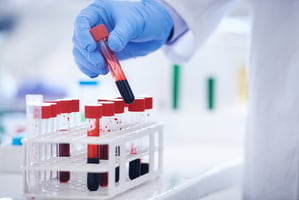FDA Approves First Blood Test to Detect Concussions
 |
The test, called the Brain Trauma Indicator, works by measuring levels of two proteinsUCH-L1 (ubiquitin C-terminal hydrolase L1) and GFAP (glial fibrillary acidic protein). These proteins are released from the brain following a head injury and appear in the blood within hours of the injury.
“A blood-testing option for the evaluation of mTBI/concussion not only provides health care professionals with a new tool, but also sets the stage for a more modernized standard of care for testing of suspected cases,” FDA Commissioner Scott Gottlieb, M.D., said in a press release.
Health care professionals currently evaluate patients suspected of head injuries with the 15-point Glascow Coma Scale followed by a computed tomography (CT) scan of the head to detect intracranial lesions that may need follow-up care. More than 90% of patients presenting to the emergency department with mild TBI or concussion have a negative CT scan, according to Banyan Biomarkers, Inc., the developer of the Brain Trauma Indicator.
The FDA evaluated data from a multicenter, prospective clinical study of 1,947 individual blood samples from adults with suspected mTBI/concussion and reviewed the product’s performance by comparing mTBI/concussion blood tests results with CT scan results. According to the FDA, the Brain Trauma Indicator was able to predict the presence of intracranial lesions on a CT scan 97.5% of the time and those who did not have intracranial lesions on a CT scan 99.6% of the time.
“These findings indicate that the test can reliably predict the absence of intracranial lesions and that health care professionals can incorporate this tool into the standard of care for patients to rule out the need for a CT scan in at least one-third of patients who are suspected of having mTBI,” the agency noted in the press release. The results of the test are available within three to four hours.
For related information, see the Psychiatric News article “Blood Test May Detect Concussions Days Later.”






